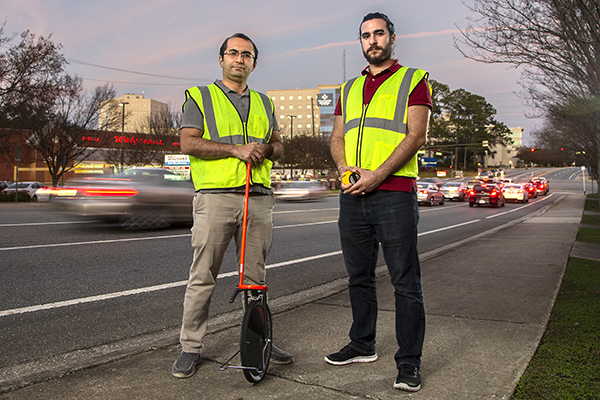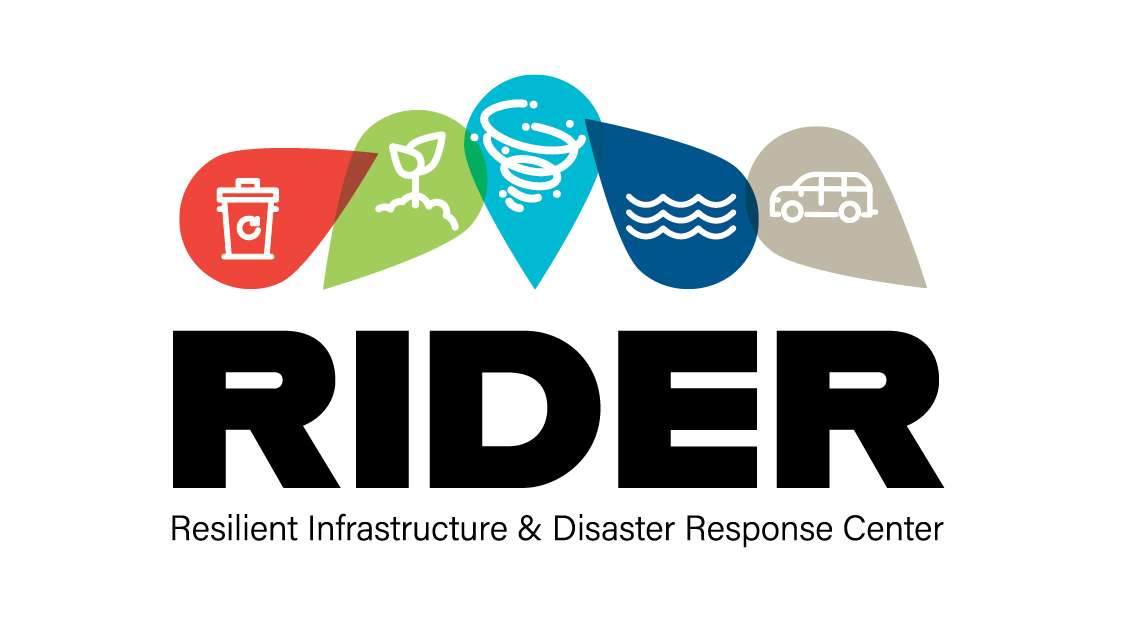Vision
A WORLD IN WHICH EVERYONE IS RESILIENT TO DISASTER
RIDER promotes all-inclusive and equitable disaster resilience for vulnerable populations and probes the underlying causes of disaster vulnerability in communities. This is done while accounting for infrastructure characteristics and social needs. Their significance is assessed through various computational methods such as machine learning, causality, and regression models. These goals are critical since the associated risks are heterogeneous across population groups and space dependent on the available network, infrastructure, land use, and other localized conditions.

RIDER’s vision focuses on implementing living laboratories in real-life urban and rural communities and settings, grounded in the scientific exploration of the complex and nonlinear interactions among systems. The key insight underlying this vision is the transformative discoveries through the co-production of solutions with community leaders, residents, government, industry, and researchers. Our unique multi-disciplinary approach, along with the close involvement of these stakeholders, will result in new research insights and policy instruments. As our overarching strategy, we seek to become a nationally and globally recognized center of resilience for disasters.
Strategic Goals
RIDER has goals for four specific areas: Education and Diversity, Leadership and Management, Knowledge Transfer, and Integrative Research.
Education and Diversity
- Integrate cutting-edge, multidisciplinary research, education, and outreach efforts across the region,
- Advance innovative training of a scientific workforce through public education and promotion of greater diversity and inclusion, and
- Develop better community leadership programs and help form stronger social networks fusing neighbor-to-neighbor ties and other community connections as well as direct connections and ties to city governments and communities.
Leadership and Management
- Enable the Center’s mission through inclusive and transparent decision-making as well as effective and responsible implementation,
- Inspire Center participants, partners, and communities, and
- Facilitate collaborative efforts within and beyond the center.
Knowledge Transfer
To develop effective mechanisms and pathways to facilitate intellectual exchanges among RIDER partners, communities and industrial collaborators. These partners then will support the sharing of knowledge and application of new technology on real-world resilience problems while extending our knowledge of community-scale limitations in developing all-inclusive disaster mitigation and recovery plans.
Integrative Research
- Produce transformative, synergistic research through an inclusive collaborative culture that crosses disciplinary and institutional boundaries and is embedded throughout the center’s activities,
- Act as a catalyst to lead a multi-disciplinary research team that can successfully bring both federal and state-level funding,
- Achieve a continuity and diversity of funding sources from government, foundation and other sources,
- Be recognized as a major national entity in the disaster resilience field, and
- Disseminate widely an increasing quantity of original and highly regarded scientific research.



